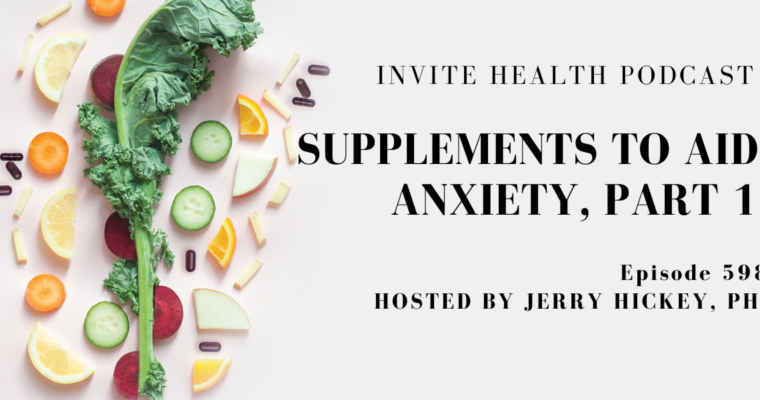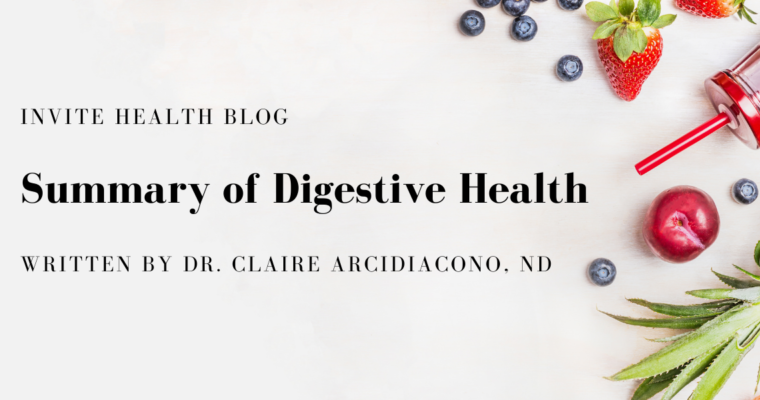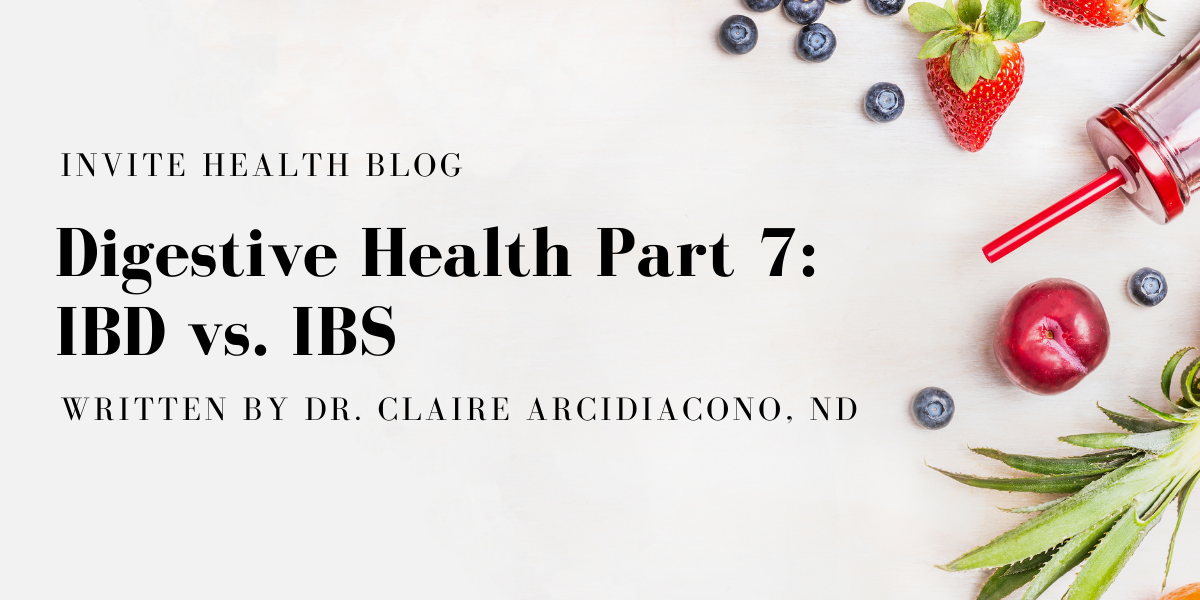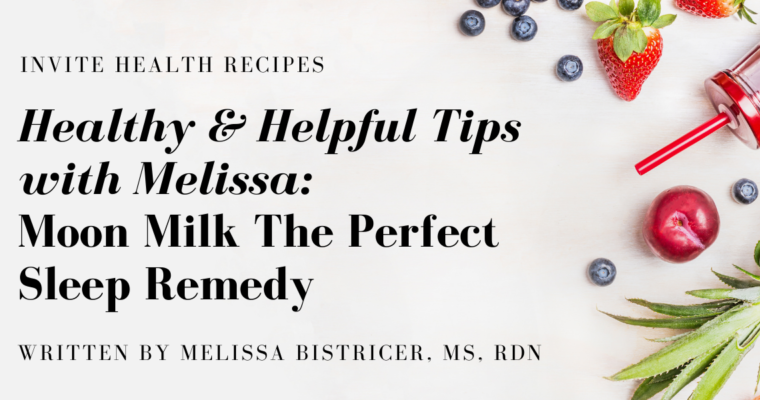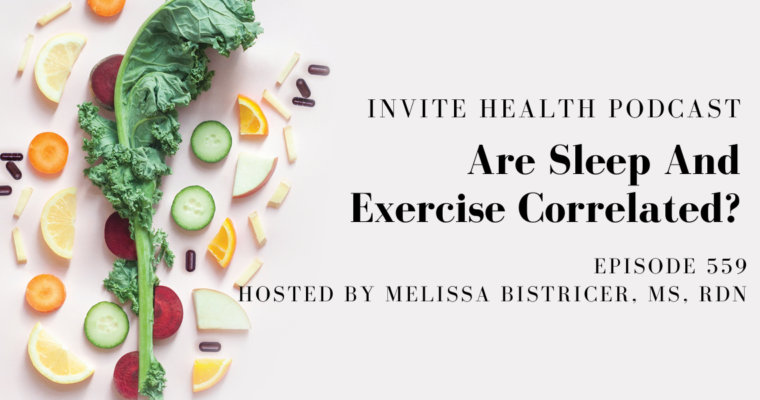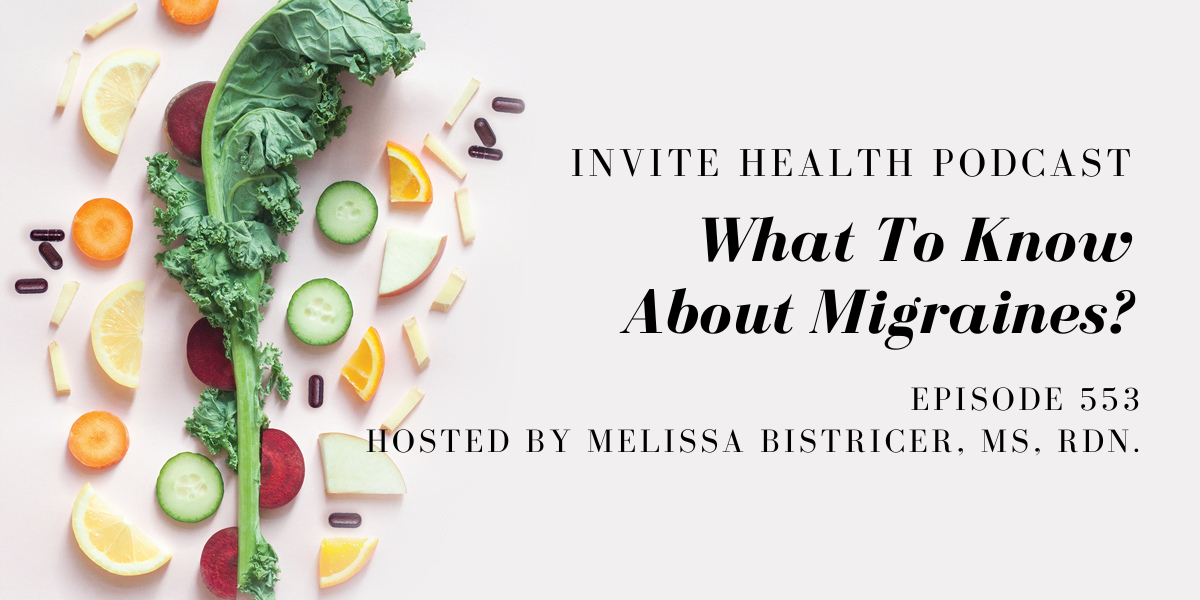What Can Help You Get Over Migraines?
Subscribe Today!
Please see below for a complete transcript of this episode.
What Can Help You Get Over Migraines? – InVite Health Podcast Episode 553
Hosted by Melissa Bistricer, MS, RDN
*Intro music*
InViteⓇ Health Podcast Intro: Welcome to the InViteⓇ Health Podcast, where our degreed healthcare professionals are excited to offer you the most important health and wellness information you need to make informed choices about your health. You can learn more about the products discussed in each of these episodes and all that InViteⓇ Health has to offer at www.invitehealth.com/podcast. First time customers can use promo code PODCAST at checkout for an additional 15% off your first purchase. Let’s get started!†
*Intro music*
Melissa Bistricer, MS, RDN : [00:00:40] Hello and welcome back to another podcast here at InViteⓇ Health. Are you suffering from migraine headaches? I know that when I get a migraine, I just need to be in a dark room and sleep. This does impact my daily life. So you may think, how can you live your daily life like this? Well, lucky for you, today we’ll be talking a little bit more about diet and supplements that may be able to help you with your migraine headaches.† [00:01:04]
[00:01:05] My name is Melissa Bistricer and I am a registered dietitian. I am so excited to bring to you the nutritional aspect here at InViteⓇ Health. Nutrition, food for thought: here’s to a year of better habits, positive thinking, clean eating, and most of all, loving to yourself. InViteⓇ Health promotes an integrative approach in providing vitamins into your daily life to increase your quality of life. In conjunction with nutrient it is also important to learn and include other lifestyle modifications like nutrition, exercise and sleep. These practices with the use of vitamins will provide optimal benefits in your daily life. † [00:01:42]
[00:01:43] Now let’s get talking about the topic of migraines. Migraines are defined as headaches that are debilitating. They consist of severe throbbing pain and pulsing sensations in the temple area. There are different types of migraines and migraine symptoms as everyone experiences migraines in different stages. The most common type of migraines is migraines without the aura, which is no warning signs as when many migraine attack is going to start. A migraine with the aura is a warning sign. It appears that the migraine is going to start. The warning signs can be from sight, such as blind spots or seeing flashing lights. Evidence has suggested the possible cause of migraines can be related to a low serotonin level or hormonal imbalance. Migraine risk factors can be sex, age, family history, and other medical conditions such as depression, anxiety, sleep disorder, or even epilepsy. Side effects of migraine headaches can be exhaustion, nausea, vomiting and sensitivity to light, sound and sometimes even smell or touch. Triggers that are important to be aware of with migraines can be from hormonal changes from the menstrual cycle for woman, stress, foods, skipping meals, and weather changes. It is important to keep track of symptoms to try to prevent migraines from arising. Trying to avoid or identify triggers will help you to minimize headaches. Keeping a logbook of patterns and symptoms will help to use will help you to figure out the specific causes of the issue. Other factors are to manage stress with relaxation, such as meditation, yoga or mindful breathing. We also want to include eating a regular schedule diet, drinking lots of fluids and getting plenty of rest and regular moderate exercise.† [00:03:28]
WHAT THE HECK IS A HORMONE? – INVITE HEALTH PODCAST, EPISODE 541 >> Listen Now!
[00:03:30] Migraines are not preventable, unfortunately, and are thus far not 100% treatable either. But there are certain precautions you may be able to take to help reduce the symptoms. We will discuss specific foods to avoid and what supplements may be beneficial. Though generally we see migraines treated medically with nonsteroidal anti-inflammatory drugs, otherwise known as NDAIDs such as acetaminophen or Excedrin migraine with the added caffeine. Triptan drugs that are used act as an antagonist for 5-hydroxytryptamine receptors or other drugs such as opioids or corticosteroids. We know that NSAIDs can potentially hurt the liver and kidney in the long run. Opioids will deplete the body of folic acid, vitamin C, iron, potassium. And corticosteroids will deplete the body of beta carotene, B-6, folic acid, vitamin C, vitamin D, calcium, magnesium, potassium, selenium, zinc and melatonin. Therefore, it is very important that if you are taking any of these drugs that you make sure that you’re getting the sufficient amount of nutrients that may be depleted due to the prescribed drugs. These interventions are not the best alternatives, and you may want to consider trying to use a natural alternative with the diet and supplements.† [00:04:47]
[00:04:49] Natural interventions that can be beneficial for migraines is to adjust your diet to a no tyramine diet. Improving sleep, having a key self-care regimen such as meditation, massage, facials, chiropractor or sufficient exercise. And lastly, adding supplements such as CoQ10, Melatonin, Riboflavin and Magnesium to help provide relief in migraine headaches. Diet is an extremely important factor to try to eliminate the frequencies of headaches.† [00:05:17]
[00:05:18] A population based study was completed on caffeine risks for those with daily headaches. The conclusion resulted in dietary or medical caffeine consumption has a minimal risk factor for chronic daily headache onset. The recommendation is to limit caffeine intake to 1 to 2 cups per day, approximately 200 milligrams of caffeine daily. The dietary guidelines for Americans recommend having healthy eating habits incorporating as much as we can whole grains, increasing fruits and vegetables with a variety, limiting sodium intake to less than 2300 milligrams daily, trying to limit to skip meals, trying to drink plenty of water, and commonly follow a diet to help eliminate or prevent migraines to follow a low tyramine diet.† [00:06:03]

[00:06:03] What is a low tyramine diet? Well, tyramine simply just means a compound which occurs naturally in cheese and other foods and can cause dangerously high blood pressure if someone is taking a specific inhibitor. Though, a low tyramine diet is simply just eliminating cured, pickled, smoked, and processed meats. Examples of high tyramine foods that should be avoided to reduce the chances of getting migraines are sauerkraut, kimchi, pickled beets, pickles, and fermented foods such as tofu or miso. In a low tyramine diet you want to try to include as much as possible whole grains, eggs, fresh meat, fish, poultry, non fermented or pasteurized dairy cheeses like milk cream cheese or cottage cheese or cottage cheese. Other factors in a diet that may contribute to migraines can be nitrates, which nitrates are the preservation of foods such as hot dogs and deli meats and monosodium glutamate, otherwise known as MSG, used as a flavor enhancer in some Chinese foods and soups and phenylethylamine compounds found in chocolate, garlic, nuts, raw onions and seeds. It is important you test these foods out to assess if they are causing you migraines and taking further precaution. If they do cause you migraines to try to eliminate eating these foods. † [00:07:21]
[00:07:23] Let’s dive a little deeper now in talking about the nutritional supplements. CoQ10 is beneficial for cellular energy production is a highly active in areas especially the brain and can be depleted rapidly. A study was completed with a number of days with nausea due to migraine headaches and taking CoQ10 supplementation. Was seen to help to reduce the number of days with nausea due to migraine headaches. The American Academy of Neurology 56th annual meeting in San Francisco shows that CoQ10 may have benefits on migraines. Patients in the supplement group who experience migraines taking 100 milligrams three times a day of CoQ10 had less migraines in the three months of the study than those who took the placebo pill. † [00:08:05]
[00:08:07] Next is melatonin, levels can oftentimes be below, especially during a migraine attack. Clinical studies have shown improvement of symptoms and reduced attacks with taking melatonin. The Gail Academy has studied the therapeutic potential of melatonin in migraines. Current research suggests that migraines are responsible for a pineal circadian irregularity. Which is given melatonin normalize this to circadian cycle. Melatonin may have potential to play an important role in resynchronizing biological rhythms to a lifestyle and subsequently relieving migraines. The researchers state that the use of melatonin found is safe for people who suffer from migraines with fewer or no side effects at all.† [00:08:49]
[00:08:50] Riboflavin has been shown to be effective in preventing migraines with the ability to enhance mitochondrial energy production. Riboflavin, which is also known as B2. This helps with the cell growth, enzyme function and energy production. The data that has been study shows that Riboflavin has been effective for migraines due to patients with mitochondrial genetic abnormalities. Taking a high dose of riboflavin can help to reduce migraine attacks by about two attacks per month. A study was completed on individuals suffering from migraines given 400 milligrams of riboflavin per day. Headaches have been significantly reduced from four days a month to two days a month after 3 to 6 months of treatment. The intensity in hours did not improve, but the frequency of the migraines improved with the use of riboflavin treatment. † [00:09:40]
[00:09:41] Magnesium is an extremely important supplement which we have spoken about previously. Magnesium deficiency is linked to multiple processes. Implicating the migraine pathology can trigger cortical spreading depression, platelet aggregation and vasoconstriction. Specifically, studies have been completed on magnesium citrate the benefits of helping reducing migraine symptoms. There has been several double blind, randomized, placebo controlled trials that have shown efficacy of using magnesium to relieve headaches and leading accommodations to use oral magnesium to relieve headaches in several national and international guidelines.† [00:10:16]
TOP FIVE SUPPLEMENTS TO PROMOTE OVERALL HEALTH – INVITE HEALTH PODCAST, EPISODE 542 >> Listen Now!
[00:10:18] With the use of supplements also comes the responsibility of changing your diet to eliminate foods that may cause migraines as well. As we mentioned, staying away from the high tyramine foods, nitrates, MSG and Phenylethylamine Foods, and also adding in supplements such as CoQ10, melatonin, riboflavin and magnesium into your daily supplement regimen. It is an integrated approach where nutrition and supplements are important to be modified together. So getting exposure can come in many different ways. My advice to you is to start to create a log of migraine symptoms. See what you’re having migraines from. Is it a stressful time? Is it some type of food you’re eating like deli meat or fermented foods? This way you can have a better idea. You can specifically relate if it’s stress, maybe you need to incorporate yoga or meditation into your daily life. If it was due to specific foods, you may want to adjust your diet, eliminating the foods and seeing if the migraine duration or frequency subsides due to the changing of your diet. Lastly, with the lack of symptoms, you can introduce supplements to help as well as discussed before beneficial supplements to help with the frequency can be CoQ10, Melatonin, Riboflavin and Magnesium. You can also go check out the products sold at invitehealth.com and if you have any further questions, you can always chat with myself as a nutritionist or any of our health care providers to assist you here at invitehealth.com or feel free to email me at mbistrcier@invtehealth.com again that’s mbistricer@invitehealth.com.† [00:11:48]
[00:11:51] I am Melissa Bistricer, RDN ready to share the knowledge to help you modify your lifestyle to live a happier, more successful life. I’m looking forward to continuing to provide you with educational podcasts and blog posts. Again nutrition food for thought: here’s to a year of better habits, positive thinking, clean eating, and most of all, loving yourself. Have a great day and tune in for the next podcast coming your way soon.† [00:11:51]
*Exist Music”


